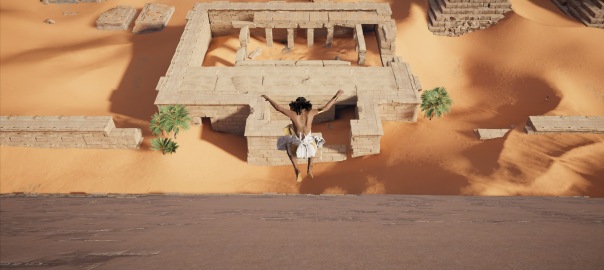The book contract is signed, the chapter authors are completing their chapters, and we have a book cover image from Ubisoft (not this one, this is a screenshot from AC Origins Discovery Tour), I just need to update my own chapter and references.
Assassin’s Creed in the Classroom: History’s Playground or A Stab in the Dark?
Editors: Erik Champion, Juan Hiriart
Publisher: De Gruyter, Video Games and the Humanities series
Section 1: History Through Play
- Historical Video Games and Teaching Practices, Marc-André Éthier, David Lefrancois
- Discovery Tour Curriculum Guides To Improve Teachers’ Adoption of Serious Gaming, Chu Xu, Robin Sharma, Adam K. Dubé
- Christian Vikings storming Templar Castles: Anachronism as a Teaching Tool, Ylva Grufstedt, Robert Houghton
- Ludoforming The Past: Mediation Of Play And Mediation Of History Through Videogame Design, Julien Bazil
Section 2: Cultural History, Tours And Tourism
- Studying Greek Culture Through Historical Characters In Assassin’s Creed Odyssey, Nathan Looije
- Empathy and Historical Learning in Assassin’s Creed Valhalla Discovery Tour, Juan Hiriart
- Ubisoft’s Ancient Greece Discovery Tour as a Pedagogical Tool for a School Trip, Kevin Péloquin, Marc-André Éthier
- Discovering The Past As A Virtual Foreign Country: Assassin’s Creed As Historical Tourism, Angela Schwarz
Section 3: Narration, Creation, and Exhibition
- Classical Creations in a Modern Medium: Using Story Creator Mode in a University Assignment, Hamish Cameron
- Assassin’s Creed @ the Carlos: Merging Videogames and Education in the Gallery, Kira Jones
- From the Sketchbook to Assassin’s Creed Valhalla: An Experiment in Architectural Education, Manuel Sanchez Garcia, Rafael de Lacour
- Assassin’s Creed As Immersive and Interactive Architectural History, Erik Champion

